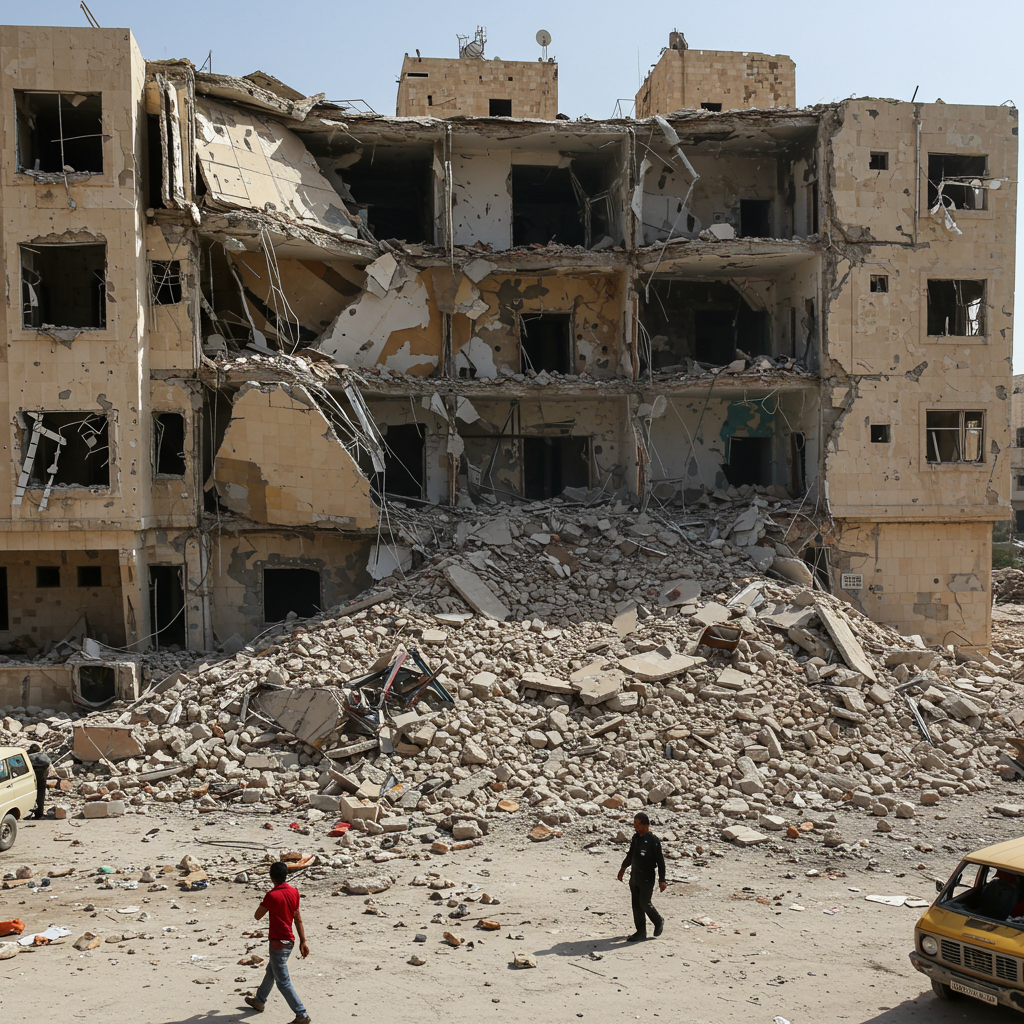The relentless conflict in Gaza has inflicted widespread destruction on essential infrastructure, including vital healthcare facilities. Among the most devastating losses is the damage to fertility clinics, particularly the Al-Basma Fertility Centre in Gaza City, where thousands of frozen embryos and other genetic samples were stored. Their destruction represents a profound loss, crushing the dreams of countless Palestinian families hoping for children.
This tragedy extends beyond infrastructure damage; it impacts individuals who have undergone years of costly and emotionally taxing infertility treatments. For many, the stored embryos represented their last, best hope for parenthood.
Shattered Dreams: Personal Stories of Loss
The human cost of this destruction is starkly illustrated by personal accounts. Noura, a 26-year-old Palestinian woman, knows this heartbreak intimately. After years of IVF treatment, she became pregnant with twins in July 2023, a moment she describes as filled with overwhelming joy. Alongside this natural pregnancy, she and her husband, Mohamed, chose to store two additional embryos at Al-Basma, planning for a larger family in the future.
However, the onset of intense conflict following the October 7, 2023 events forced Noura and Mohamed into a constant cycle of displacement. Amid terrifying bombings and lacking access to adequate food, vitamins, and medication crucial for a healthy pregnancy, Noura’s health deteriorated. Seven months into her pregnancy, she suffered a severe haemorrhage. Finding transport to a hospital was incredibly difficult; Mohamed recounts having to use a garbage truck. Tragically, by the time they arrived, the miscarriage had begun. One twin was stillborn, and the other died hours later, partly due to the reported unavailability of incubators for premature babies. “Everything was gone in a minute,” Noura shared. Adding to their grief, they discovered their precious frozen embryos stored at Al-Basma had also been lost.
Similar stories echo across Gaza. Islam Lubbad, who also conceived with Al-Basma’s help in 2023, miscarried a month into the war. Exhausted by the instability and constant need to relocate, she lost her baby and her frozen embryos stored at the clinic. Sara Khudari began her fertility journey in 2020 and was preparing for an embryo transfer when the war erupted in October 2023, preventing the procedure and ending her immediate hopes.
The Destruction of Al-Basma Fertility Centre
According to Dr. Baha Ghalayini, the director of Al-Basma, the centre was shelled in early December 2023. The most critical section of the clinic housed two specialized tanks holding nearly 4,000 frozen embryos and over 1,000 samples of sperm and eggs. These samples require cryogenic preservation using liquid nitrogen, which needs regular replenishment.
Dr. Mohamed Ajjour, the laboratory director, attempted to secure more liquid nitrogen from a warehouse roughly 12km away. However, the intense shelling and dangerous conditions prevented him from delivering the vital supply to the clinic before it was hit. Without the necessary liquid nitrogen, the stored samples thawed and became inviable.
Dr. Ghalayini emphasizes the immense human significance of the lost samples. “These are not just numbers, they’re people’s dreams,” he stated, highlighting the years of painful treatments and hope invested in these tiny embryos. He estimates that between 100 and 150 women may have lost their only realistic chance at having children. Many cannot undergo the complex and costly procedure again due to age, underlying health conditions like cancer or chronic illnesses, or having already received the maximum safe dosage of powerful fertility medications.
A Crisis for Reproductive Health in Gaza
The impact extends far beyond one clinic. Dr. Ghalayini reports that all nine fertility clinics in Gaza have been either destroyed or rendered non-operational by the conflict. This widespread destruction leaves women like Noura, Islam, and Sara, and thousands of others, with virtually no options for pursuing IVF treatment in the future within Gaza.
The loss of these clinics and thousands of potential lives has also become a point of international contention. A UN Independent International Commission of Inquiry report in March 2024 accused Israel of intentionally attacking and destroying the Basma clinic. The report suggested this act was potentially intended to prevent births among Palestinians in Gaza, claiming it partially destroyed the reproductive capacity of Palestinians as a group and could constitute a genocidal act. The commission also alleged that Israel prevented necessary aid, including medical supplies for safe pregnancy and neonatal care, from reaching women.
Israeli authorities have vehemently rejected these accusations. The Israel Defense Forces (IDF) stated they operate according to international law and take precautions to minimize civilian harm. They denied deliberately targeting fertility clinics or seeking to prevent the birth rate in Gaza, calling such claims “baseless” and a misunderstanding of their operations. Israeli Prime Minister Benjamin Netanyahu strongly criticized the UN Human Rights Council, which commissioned the report, dismissing it as an “antisemitic, rotten, terrorist-supporting and irrelevant body” making false accusations against Israel.
Regardless of the conflicting claims regarding intent, the tragic reality remains: the destruction of Gaza’s fertility infrastructure has stolen the potential future of thousands of families, leaving behind only shattered hopes and the deep pain of lost dreams.
References
- https://www.bbc.com/news/articles/c15npnzpd08o
- https://www.bbc.co.uk/news/articles/c15npnzpd08o
- https://www.yahoo.com/news/hopes-motherhood-crushed-ivf-embryos-231754204.html
- https://ca.news.yahoo.com/2-killed-dozens-injured-greyhound-214121973.html


